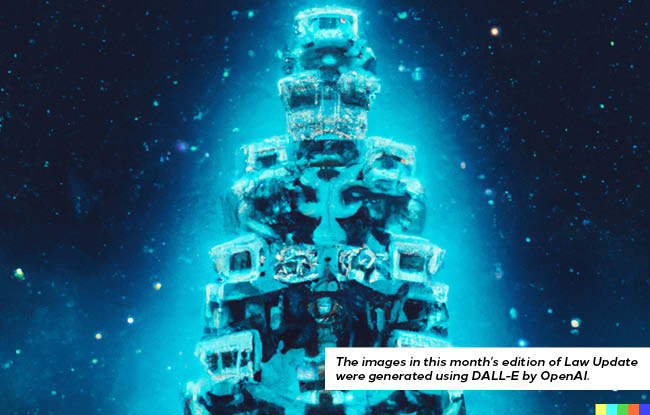- Arbitration
- Banking & Finance
- Capital Markets
- Commercial
- Competition
- Construction & Infrastructure
- Corporate / Mergers & Acquisitions
- Corporate Services
- Corporate Structuring
- Digital & Data
- Dispute Resolution
- Employment & Incentives
- Family Business & Private Wealth
- Innovation, Patents & Industrial Property (3IP)
- Insurance
Find a Lawyer
Book an appointment with us, or search the directory to find the right lawyer for you directly through the app.
Find out more
Level Up: Unlocking Financial Potential In The Middle East
Welcome to this edition of Law Update, where we focus on the ever-evolving landscape of financial services regulation across the region. As the financial markets in the region continue to grow and diversify, this issue provides timely insights into the key regulatory developments shaping banking, investment, insolvency, and emerging technologies.


2025 is set to be a game-changer for the MENA region, with legal and regulatory shifts from 2024 continuing to reshape its economic landscape. Saudi Arabia, the UAE, Egypt, Iraq, Qatar, and Bahrain are all implementing groundbreaking reforms in sustainable financing, investment laws, labor regulations, and dispute resolution. As the region positions itself for deeper global integration, businesses must adapt to a rapidly evolving legal environment.
Our Eyes on 2025 publication provides essential insights and practical guidance on the key legal updates shaping the year ahead—equipping you with the knowledge to stay ahead in this dynamic market.
The leading law firm in the Middle East & North Africa region.
A complete spectrum of legal services across jurisdictions in the Middle East & North Africa.
-
Practices
- All Practices
- Banking & Finance
- Capital Markets
- Commercial
- Competition
- Construction & Infrastructure
- Corporate / Mergers & Acquisitions
- Corporate Services
- Corporate Structuring
-
Sectors
-
Country Groups
-
Client Solutions
Today's news and tomorrow's trends from around the region.
17 offices across the Middle East & North Africa.
Our Services
 Back
Back
-
Practices
- All Practices
- Banking & Finance
- Capital Markets
- Commercial
- Competition
- Construction & Infrastructure
- Corporate / Mergers & Acquisitions
- Corporate Services
- Corporate Structuring
- Digital & Data
- Dispute Resolution
- Employment & Incentives
- Family Business & Private Wealth
- Innovation, Patents & Industrial Property (3IP)
- Insurance
- Intellectual Property
- Legislative Drafting
- Private Client Services
- Private Equity
- Private Notary
- Projects
- Real Estate
- Regulatory
- Tax
- Turnaround, Restructuring & Insolvency
- White Collar Crime & Investigations
-
Sectors
-
Country Groups
-
Client Solutions
Shifting Burdens and Accountability: The New UAE AML Law
 3 min 8 sec
November 17, 2025 (Edited)
3 min 8 sec
November 17, 2025 (Edited)
As part of its broader, ongoing drive to strengthen enforcement against financial crime, the United Arab Emirates has introduced a far reaching new law aimed at reinforcing its framework for combating money laundering, terrorist financing, and the financing of weapons proliferation. Federal Decree-Law No. 10 of 2025 on Anti-Money Laundering, Combating the Financing of Terrorism and Countering Proliferation Financing (the “New AML Law”), issued in October 2025 and effective 14 October 2025, repeals and replaces the Federal Law No. (20) of 2018 on Anti-money Laundering and Combating the Financing of Terrorism and Illegal Organisations, ushering in a stricter and more comprehensive regime.
The New AML Law establishes a more sophisticated and coordinated enforcement structure, one that aligns the UAE with evolving international standards and responds to new financial crime typologies, including those involving virtual assets and digital systems.
Expanded Legal Scope and Definitions
The New AML Law significantly broadens the scope of regulated activity and introduces several key definitional changes that extend criminal and compliance obligations alike, in particular:
- Inclusion of Proliferation Financing: For the first time, the title of the legislation explicitly includes Countering Proliferation Financing, replacing the earlier reference to illegal organisations. This change reflects a deliberate policy shift: the law now introduces standalone offences for financing the proliferation of arms
-
and weapons of mass destruction, supported by new statutory definitions.
-
Expanded Predicate Offences: The concept of a Predicate Offence has been clarified to expressly include tax evasion (both direct and indirect), widening the base of underlying crimes from which illicit proceeds may originate.
-
Digital and Virtual Assets: Recognising the rapid growth of digital finance, the law now provides that money laundering and terrorist financing offences can be committed through digital systems, virtual assets, or encryption technologies language that did not appear in the 2018 law.
-
Refined Definition of Proceeds: The definition of Proceeds has been expanded to capture recurring or derivative benefits not only profits but also any other advantage derived from criminal property closing potential loopholes on indirect gains.
-
Clarified Knowledge Standard: A person may now be held liable not only if they knew that funds originated from criminal conduct but also if they should reasonably have known, introducing a lower threshold of awareness similar to negligence based standards seen in other jurisdictions.
This marks a significant shift from the prior regime and signals the UAE’s intent to ensure accountability even where intent may be difficult to prove.
Increased Penalties and Enhanced Powers
The New AML Law also introduces heavier penalties and a stronger enforcement architecture, particularly through the UAE Financial Intelligence Unit (FIU) and a newly formalised asset recovery regime.
Strengthened FIU Authority
Article 5 empowers the Head of the FIU to suspend transactions for up to ten working days and freeze funds for up to thirty days, extendable by the Public Prosecutor. Under the 2018 law, these powers were limited to seven days and rested with the Central Bank Governor.
Freezing vs Seizure Clarified
The new definitions separate freezing from seizure measures.
-
A Seizure Order may extend for up to 10 days (extendable) and transfers control of the
-
assets to the competent authority.
-
A Freezing Order may last 30 days (extendable) and restricts the holder’s use, transfer, or disposal of assets while leaving them in their possession.
Formal Asset Recovery Framework
Article 22 introduces a comprehensive asset recovery mechanism, to be elaborated by forthcoming Cabinet regulations. It provides for confiscation and management of criminal property while safeguarding the rights of bona fide third parties, an element largely absent from the 2018 law.
-
Invalidation of Obstructive Arrangements
Any contract or transaction intended to hinder the seizure or confiscation of assets is now deemed null and void, reinforcing the UAE’s determination to prevent evasion.
Substantially Increased Fines
Penalties have been raised across all key offences, many now linked directly to the value of the criminal property.
Next Article
Written by
Newsletter
To learn more about our services and get the latest legal insights from across the Middle East and North Africa region, subscribe below.

















